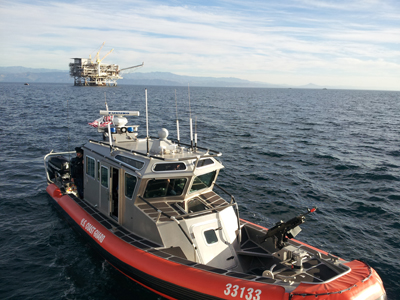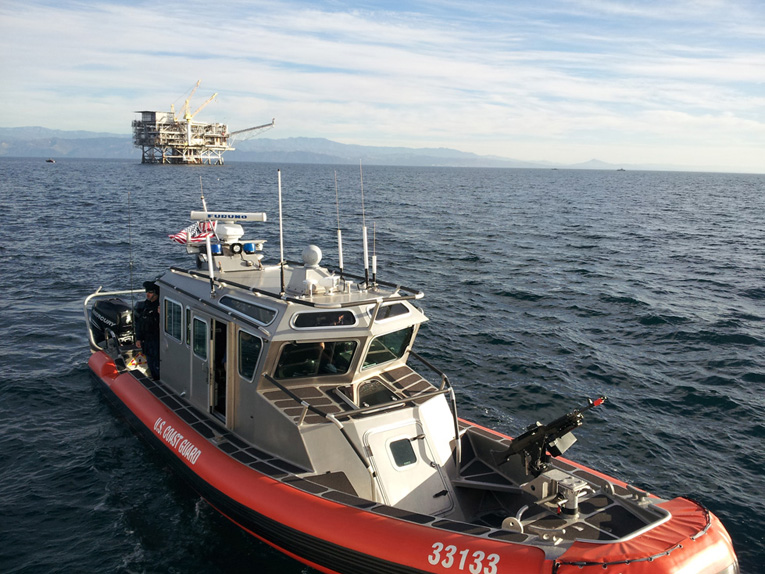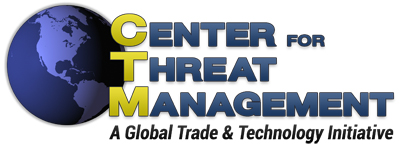The Center for Threat Management conducts operational research in order to accomplish its mission to identify, evaluate and implement solutions to the threats that impede access to global commerce and impact national security. These programs are a result of collaborative partnerships between federal, state, and local government, the private sector, and academia and emphasize a “whole of society” paradigm of threat management that recognizes and leverages the unique capabilities that exist across the public and private sectors.
CTM research is comprised of activities that serve to harness current, developing, and transitional capabilities through the following disciplines:

Education programs focus on the human element of solutions and are designed to match individual proficiency with operational requirements. This is achieved primarily through applied courses of instruction and discussion-based activities that focus on building knowledge.

Experimentation programs focus on the technological element of solutions and are designed to match technology with capability gaps. This is achieved through scenario-based field test and evaluation activities that bound the limits of system capabilities and limitations.
![]()
Operational evaluation programs focus on the integrated system of people, products, and processes that comprise a threat management strategy. This is achieved by putting into practice and exercising all of the elements of capabilities in order to validate effectiveness and suitability against relevant threat scenarios.
In order to ensure a systematic approach to research that adds value and remains impartial, CTM employs a methodology based on the principles of systems engineering. Under this framework, threat management solutions are identified, evaluated, and implemented according to the unique requirements imposed by the operational environment and the differences in roles and responsibilities, resources, and capabilities applied by stakeholder organizations. By implementing a standardized, repeatable, and requirements-based methodology, research activities can be conducted to examine any potential threat environment.
Research Focus Areas
CTM research focuses on the cycle of emergency management, recognizing that threat effects overlap significantly between operational environments and scenarios:

- Research in the area of Threat Assessment and Deliberate Planning is conducted to identify and prioritize relevant hazards and vulnerabilities, guiding planning and resource organization to ensure preparedness.
- Research in the area of Domain Awareness and Information Dominance is conducted to facilitate collaborative constructs for leveraging information in the operational environment, informing decisions, and supporting detection of potential threats.
- Research in the area of Threat Detection and Crisis Planning focuses on strategies to recognize variances in the routine “pattern of life” in a given environment and rapidly determine effective courses of action against identified threats.
- Research in the area of Response Coordination and Consequence Management is conducted to provide scenario-based venues for experimentation, exercise, and evaluation of capabilities to respond to and manage the spectrum of threat effects.
- Research in the area of Best Practices and Continuous Improvement is conducted to facilitate implementation of observations recommendations, and lessons learned during operational research activities.
Through examination of the participants, activities, and capabilities associated with each phase of the cycle, a comprehensive strategy can be formulated that simultaneously addresses the effects of multiple threats, leverages commonality, and identifies requirements that might be unique to a given scenario. In this manner, research conducted against one threat or in a particular operational environment can be assessed for application or adaptation to several others.


November 2013 off the coast of Ventura, California
A U.S. Coast Guard Special Purpose Craft-Law Enforcement provides perimeter security and support to a maritime tactical response operation conducted aboard Platform Grace during the 2013 Offshore Platform Security Threat Awareness and Response Program.
Photo Credit: Scott Brewer, Center for Asymmetric Warfare
CTM is a non-profit research organization. Our research programs are sponsored through partnerships with public and private sector organizations.These sponsors include federal, state, local government agencies, private sector organizations and industry or professional associations, and international governments and organizations.
If you would like to support CTM research through a tax-deductible donation, you may do so here.
If you would like to contact us regarding research opportunities, current and upcoming programs, or general information, we welcome your inquiries.
